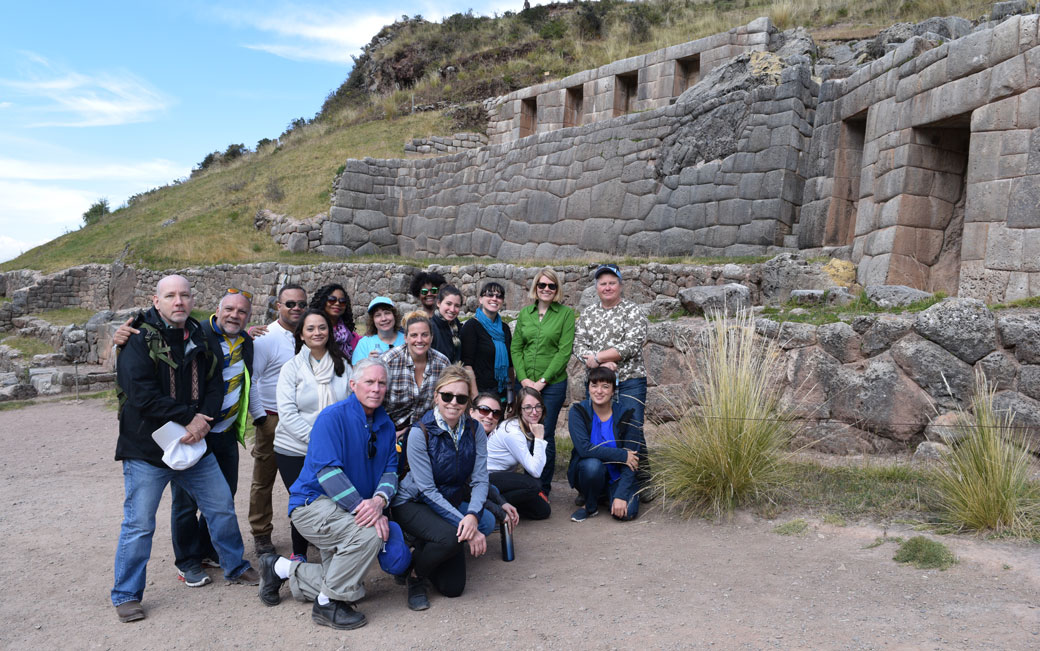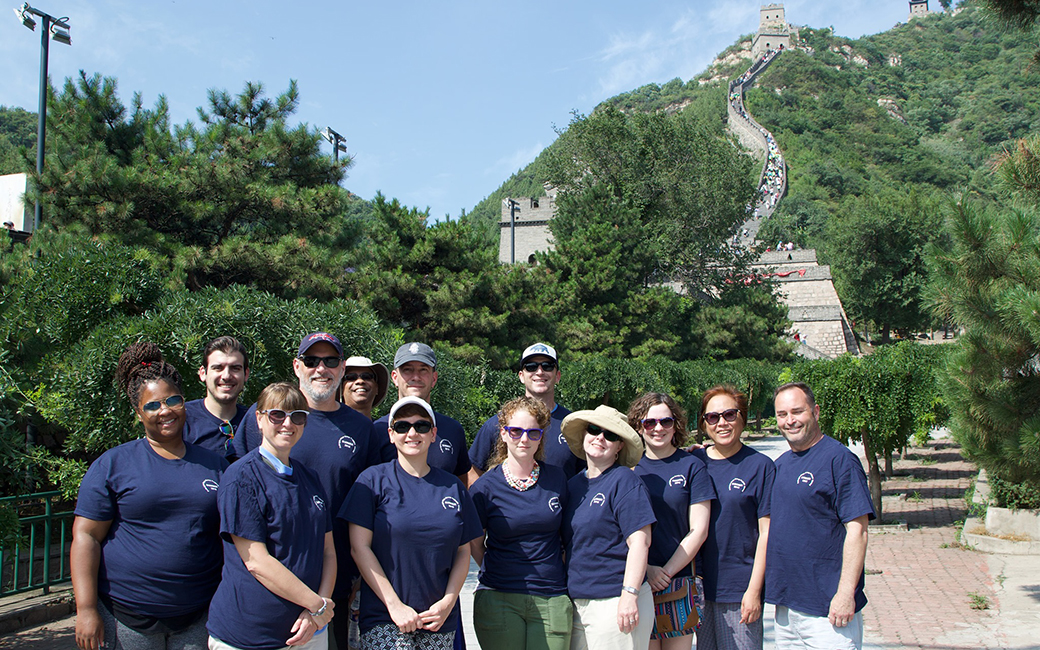U.S. Department of Education awards TU faculty $200,000 for immersion programs
Professors Colleen Ebacher and Lijun Jin awarded Fulbright-Hays grants to host U.S. educators on curriculum-development trips to Peru and China
By Rebecca Kirkman on January 21, 2020

In public school classrooms across the U.S., educators are teaching about cultures that they’ve never experienced firsthand.
But how would their teaching change if that educator had the chance to immerse themselves in another culture and bring that experience back into their classrooms?
That’s the idea behind the Fulbright-Hays Group Projects Abroad, a program funded by the U.S. Department of Education to support cultural immersion and curriculum development in foreign languages and area studies.
With $200,000 in Fulbright-Hays funding, TU faculty members will host groups of educators in Asia and South America this summer.
“I’ve had participants say to me, ‘I know about China, but when I actually get there, it’s such a different experience than what I already know,’” explains Elementary Education Professor Lijun Jin from the College of Education.
Jin was awarded just under $100,000 for her Fulbright-Hays grant proposal China Experience: Empowering American Public School Teachers to Transform Social Studies Curriculum in Secondary Classrooms.
“ They feel that it goes beyond a ‘wow’ experience for them. They say it’s an experience that changed their life. ”
With the funding, Jin will lead 12 middle and high school teachers from across the U.S. on a tour of China’s cultural and educational sights this summer. It will be the seventh Fulbright-Hays project trip Jin has led since 2006. She is supported in the project by TU History Professor Emeritus Steven Phillips, who works with participants during the pre-travel coursework and preparations.
After a semester of pre-departure preparation, Jin and her group will spend five weeks traveling throughout China, from Shanghai and Beijing to inner Mongolia and the Northeast, along the ancient Silk Road from from Xi’an and from Xining to Chengdu. The immersion experience will include seminars provided by local experts and scholars, school visits, meetings with local teachers and students and cultural excursions.
Each time Jin travels with students builds upon prior trips, adding new topics and locations to the itinerary. “We kept doing it each time because of the impact on the students,” Jin says. “They feel that it goes beyond a ‘wow’ experience for them. They say it’s an experience that changed their life.”

Foreign Languages Professor Colleen Ebacher in the College of Liberal Arts was awarded just under $100,000 for her proposal Partners in Education: Working Together to Enhance the Teaching of Latin America, which will support 15 K-12 teachers as they travel with Ebacher to Peru this summer.
The funding allows Ebacher to continue work she started in 2005—the first year she received the grant—and has continued biennially since.
With History Professor Ronn Pineo, Ebacher and the 15 participants will spend eight weeks in Piura and Cusco, Peru, participating in language study, lectures, interviews, home stays, excursions, workshops and cultural activities as they explore issues central to Latin America.
Through the program, teachers gain intercultural competence and adaptability, improve Spanish language skills, and become part of a teacher learning community that persists long beyond the trip itself.
These types of experiences are important, Ebacher says, because Hispanic Americans are the largest minority in the U.S., and make up a growing percentage of our nation’s public school enrollment. Their teachers, meanwhile, remain primarily white and many have little prior cultural and linguistic experiences to prepare them to engage with diverse student groups.
Experiences like Ebacher’s “Partners in Education” give educators the tools they need to succeed in today’s classrooms.
When they return to the U.S., participants in both programs design curriculum that will be implemented in their schools.
“My favorite part is to see them in action after we return,” says Ebacher, who travels to visit the home classrooms of project participants that are within driving distance of Towson.
The ripple-effect is the biggest reward for Jin, too. The curriculum is shared in classrooms, throughout districts, and presented at conferences and published in journals. Two educators from her most recent trip in 2018 even plan to take their students to China based on the experience they had with Jin.
“The way they teach has changed,” Jin says.
This story is one of several related to President Kim Schatzel’s priorities for Towson University: TU Matters to Maryland.